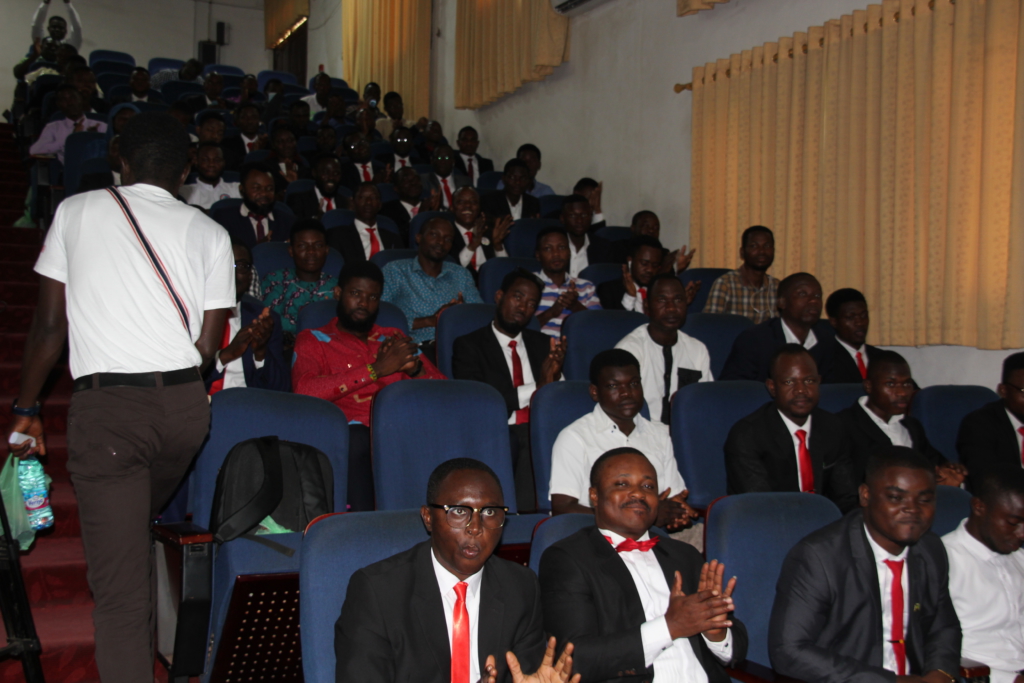More technological expertise, environmental knowledge, adaptability, and knowledge of how to use new equipment are all abilities that engineers must now acquire.
These changes and new technology considerably aid the advancement of careers and job performance, and project prospects are becoming much more creative.
As a result, Prof Stephen Jobson Mitchual, Dean of the School of Graduate Studies at the Akenten Appiah-Menka University of Skills Training and Entrepreneurial Development (AAMUSTED) is urging engineering students to stay on their toes in order to stay ahead of the curve in the engineering industry and contribute to the achievement of the 17 Sustainable Development Goals.

Prof Mitchual believes that studies and professional practices in the twenty-first century should try to assist the globalization community in accomplishing the United Nations' aims of making the world a better place to live.
Professor Mitchual was speaking during the induction and inauguration ceremony for the Institute of Engineering and Technology (IET) Ghana.
Approximately 166 students registered as members of the Institution, while 37 professional engineers from the northern sector were inducted as qualified engineers whose work will be monitored.
Engineers committed to helping build a better world by signing a declaration to advance the UN Sustainable Development Goals (SDGs) during the World Engineers Convention in late 2019. This means that engineers now have a clear mandate on their role in assisting communities to live more sustainably.
Clean water and sanitation for all (Goal 6), the availability of sustainable energy sources (Goal 7), building robust and resilient infrastructure (Goal 9) and liveable cities (Goal 11) are all goals where engineering skills will be in high demand.
However, other goals, such as responsible consumption and manufacturing (Goal 12) or quality education (Goal 4), will rely on engineering abilities as well, even if this is not immediately apparent.
With such a vast scope, the engineering community will face challenges in achieving milestones and eradicating some of the world's most severe problems.
But the larger question remains: how can engineers help the world achieve these objectives? How do they make progress and meet the SDGs' 2030 deadline?
Northern Sector Chairman of the Institution, Engineer Alexander Kello, said, crucial is how engineers from various disciplines, sectors, and locations collaborate and use proper procedures and ethics to ensure they are meeting these objectives.
He said the Institution is ensuring better and sustainable practices from members to improve lives.
Sustainability is not only a focus for the engineers, but it is also enshrined in the Engineers Code of Ethics, which asks engineers to engage responsibly with the community and other stakeholders, practice engineering to foster the health, safety, and wellbeing of the community, the environment, and balance the needs of the present with the needs of future generations.
Engineer Henry Kwadwo Boateng, President of IET Ghana, stated that with sustainability as a key ethic of being a member of the Institution, it is critical that they have the instruments to put this into effect.
According to him, the goal of adopting sustainability is to assist engineers in understanding the relationship between the environmental, social, and economic conditions of their job.
He also stressed the importance of practical guidance for implementing sustainability that are consistent with the Code of Ethics.
The IET-Ghana is a registered licensed professional engineering body of the engineering council, Ghana under the engineering council act 2011, Act 819 to register various engineering professionals in all disciplines. It derives it's membership from various professional practitioners from the mechanical, automobile, Aviation, Marine, Agriculture, Civil, Building/Construction, Electrical, Electronics, Telecommunications, Chemical, Biomedical and allied engineering.
Latest Stories
-
Paris 2024: Opening ceremony showcases grandiose celebration of French culture and diversity
3 hours -
How decline of Indian vultures led to 500,000 human deaths
4 hours -
Paris 2024: Ghana rocks ‘fabulous fugu’ at olympics opening ceremony
4 hours -
Trust Hospital faces financial strain with rising debt levels – Auditor-General’s report
4 hours -
Electrochem lease: Allocate portions of land to Songor people – Resident demand
5 hours -
82 widows receive financial aid from Chayil Foundation
5 hours -
The silent struggles: Female journalists grapple with Ghana’s high cost of living
5 hours -
BoG yet to make any payment to Service Ghana Auto Group
5 hours -
‘Crushed Young’: The Multimedia Group, JL Properties surprise accident victim’s family with fully-furnished apartment
5 hours -
Asante Kotoko needs structure that would outlive any administration – Opoku Nti
6 hours -
JoyNews exposé on Customs officials demanding bribes airs on July 29
6 hours -
JoyNews Impact Maker Awardee ships first consignment of honey from Kwahu Afram Plains
8 hours -
Joint committee under fire over report on salt mining lease granted Electrochem
8 hours -
Life Lounge with Edem Knight-Tay: Don’t be beaten the third time
8 hours -
Pro-NPP group launched to help ‘Break the 8’
8 hours

